
Sustainability
Green Health Campus
Health and sustainability are topics that are reflected in the concept of the “Green Health Campus”. This starts with the framework planning for the campus, extends to the equipment of laboratory buildings, to social issues such as the compatibility of work and family or knowledge transfer.
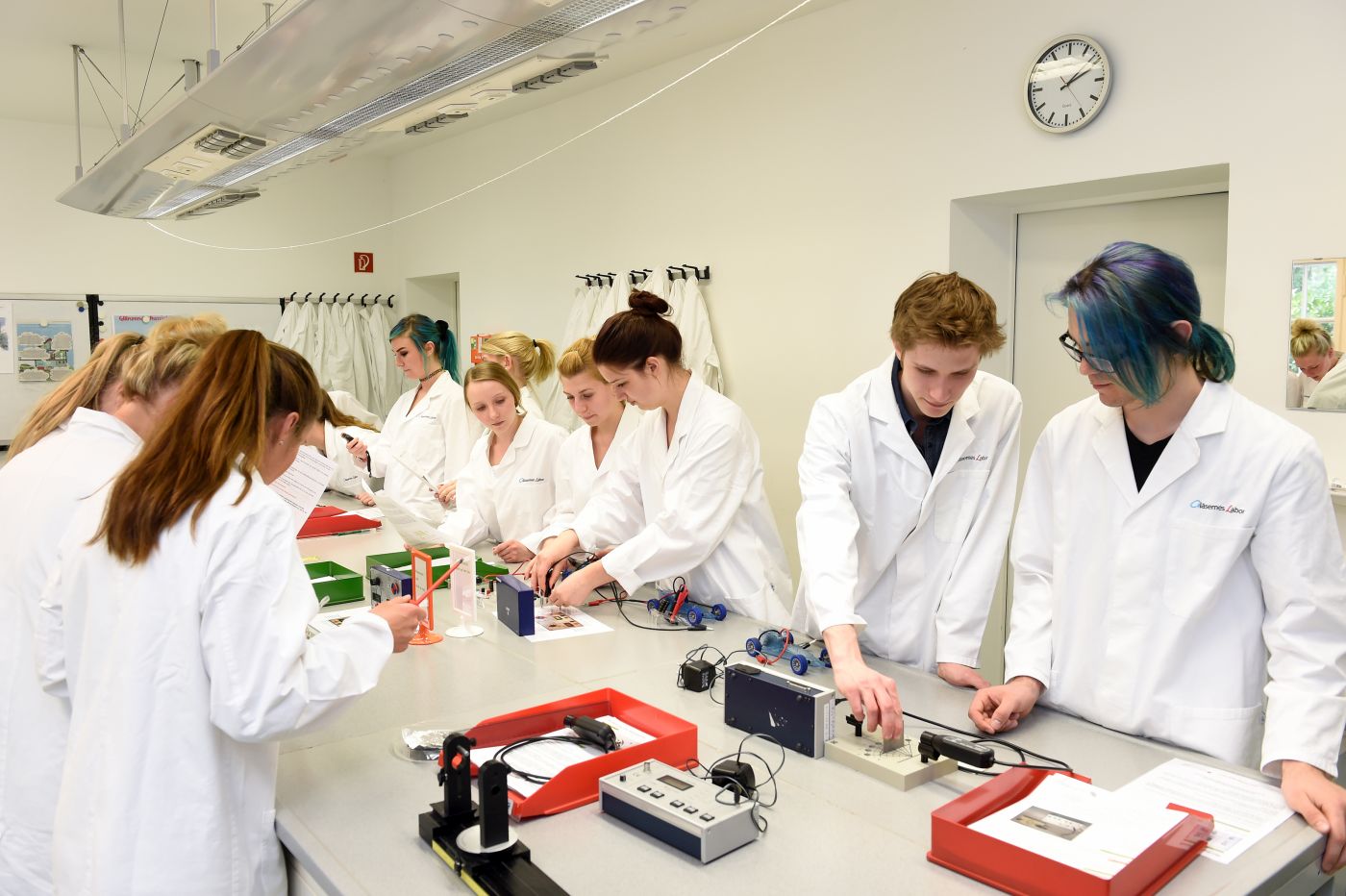
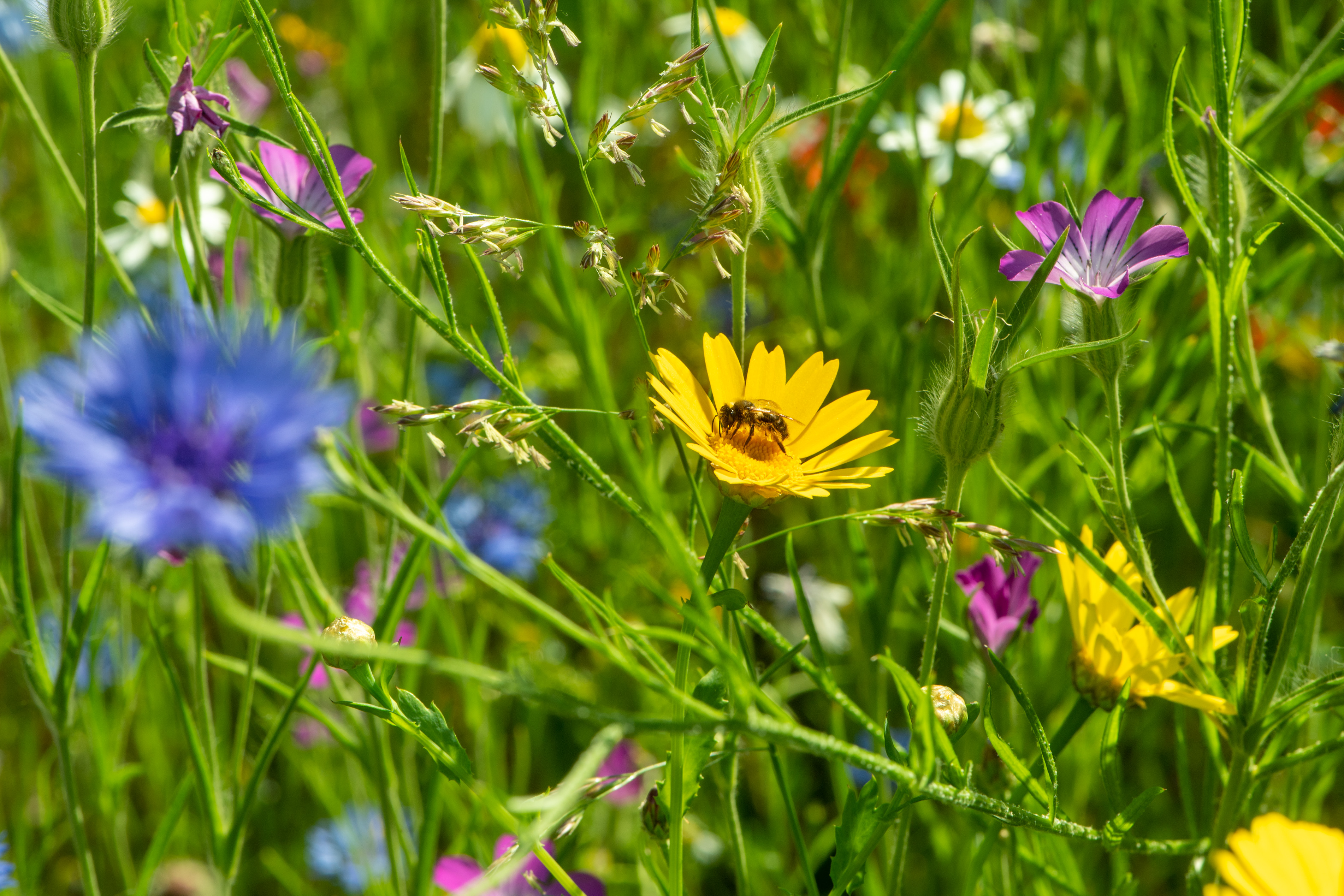
Botany and Biodiversity
An important ecological concern is to preserve the large park-like green spaces and the forest-like areas. In the future, climate-resistant plants and trees are to be planted and biodiversity is to be promoted more strongly. In cooperation with the Eberswalde University for Sustainable Development wildflower meadows were planted for the first time in 2020. Students are providing scientific support for the project. The Life Science Learning Lab has integrated insect monitoring into its educational work. The meadows also provide additional food for the campus' bee colonies. In the future, the wildflower meadows will be signposted and nature trails for woody plants, lichens and fungi will be created.
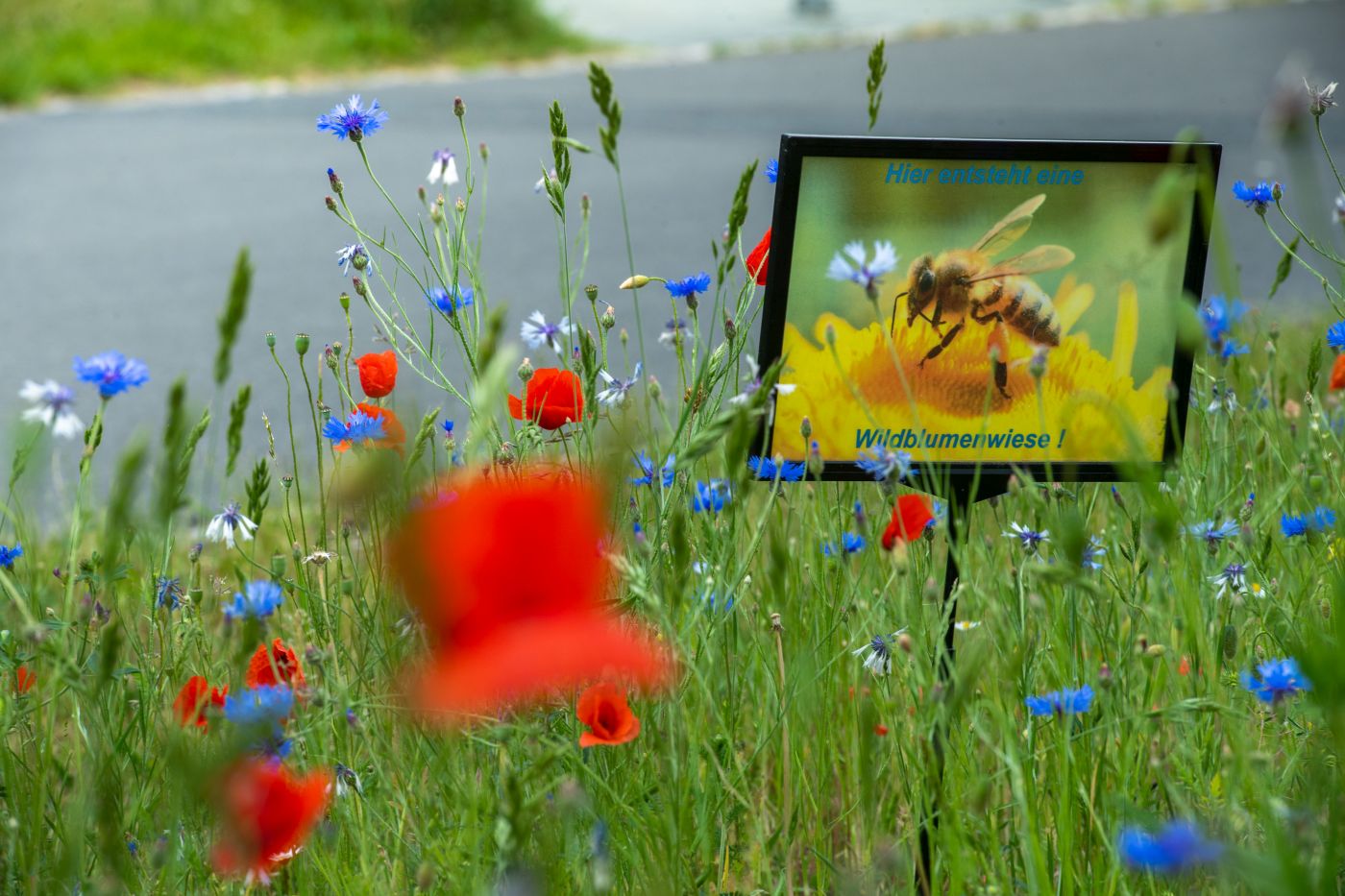
Sustainable Laboratories
At the Max Delbrück Center, the Green MDCampus project has been continuously developed for several years. In 2020, the Max Delbrück Center appointed a sustainability officer and is thus committed to sustainable development on an economic, social and ecological level. In terms of laboratories, this ranges from infrastructure projects to reducing air exchange rates to purchasing sustainable materials. The Laboratory Round, a conference for modern and sustainable laboratory buildings, has been organized and held by the Max Delbrück Center for many years.
The newly founded FMP Green Initiative of the Leibniz-Forschungsinstitut für Molekulare Pharmakologie aims at environmentally conscious actions in the laboratories. This includes simple things that can already make a big difference, such as regularly defrosting laboratory refrigerators or collecting suitable disposable gloves for recycling.
Mobility
The focus of the campus development is on environmentally friendly mobility that serves the climate and health in equal measure. The campus was recognized by the ADFC 2019 for its bike-friendliness – the free CAMPUSbike is only part of it. The campus facilities are increasingly using e-mobiles for internal delivery traffic or on-call duty. Charging stations have been installed on campus for eBikes and eCars. https://www.campusberlinbuch.de/de/mobility
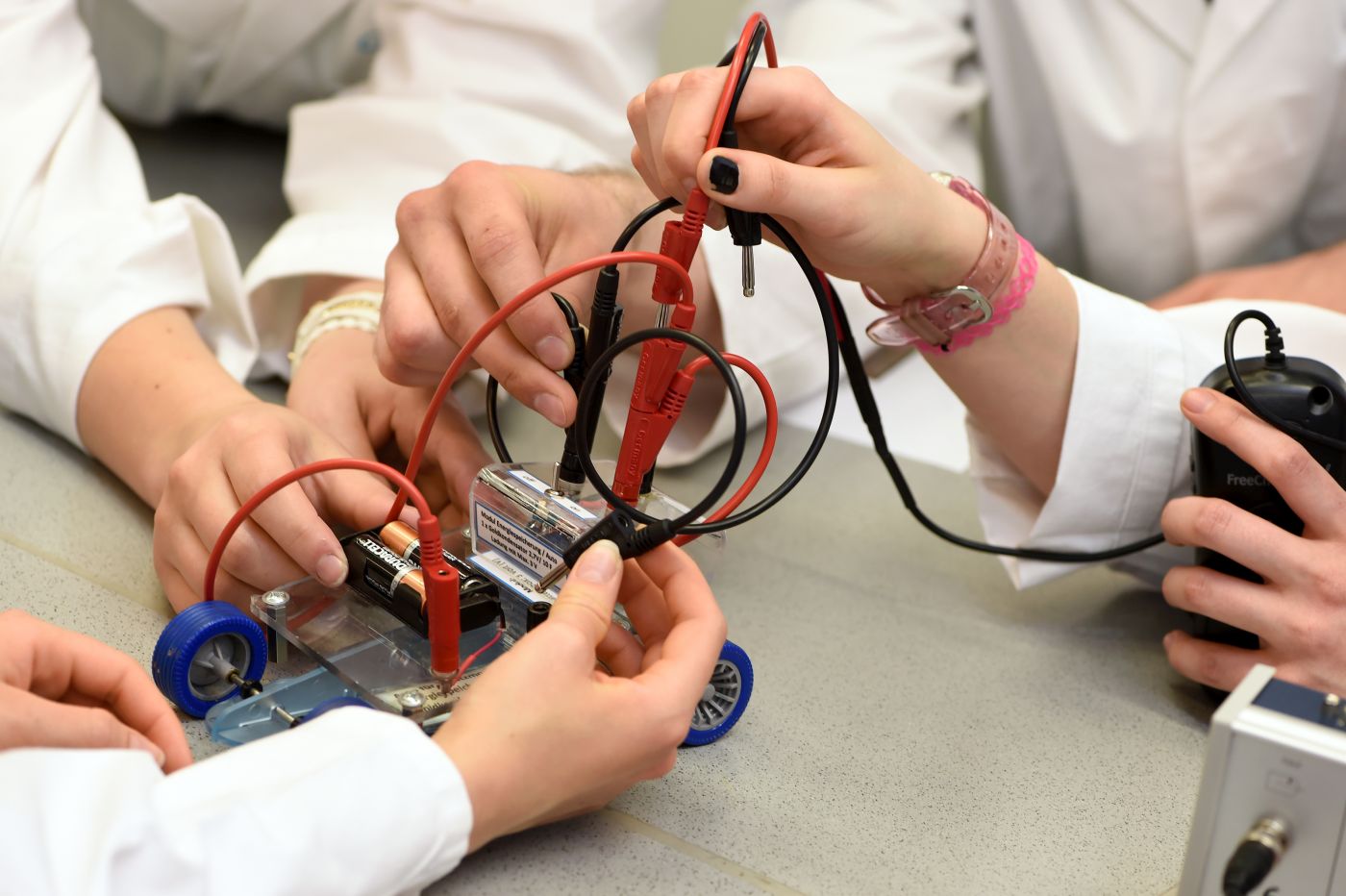
Energy Management
The CBB has developed its own energy management system, which was adapted to the DIN ISO 50001-2018 standard in 2019. As part of the certification, energy-relevant factors in the BiotechPark were analyzed, from building technology to the supply of district heating. By using modern equipment or retrofitting with modern technologies, the campus could save around 460,000 kilowatt hours from 2021. That corresponds to around 152 tons of CO2.
Campus Berlin-Buch GmbH, which is also an energy supplier itself, has been procuring 100 % green electricity since 2020. In order to enable synergies for all of Buch as location of future innovation, an energetic concept for the Quartier was developed with the district and other stakeholders.
Health and Work-Life Balance
The company health management CampusVital promotes the health of campus employees very directly: through sports courses, coaching on work-life balance or health days. The Max Delbrück Center and the Leibniz-Forschungsinstitut für Molekulare Pharmakologie attach particular importance to supporting their employees in balancing work and family. The green campus offers opportunities to relax or work outdoors. There are plans to expand outdoor sports such as a fitness course or a beach volleyball court. To strengthen social interaction, summer parties, the campus cinema or concerts are held on campus.
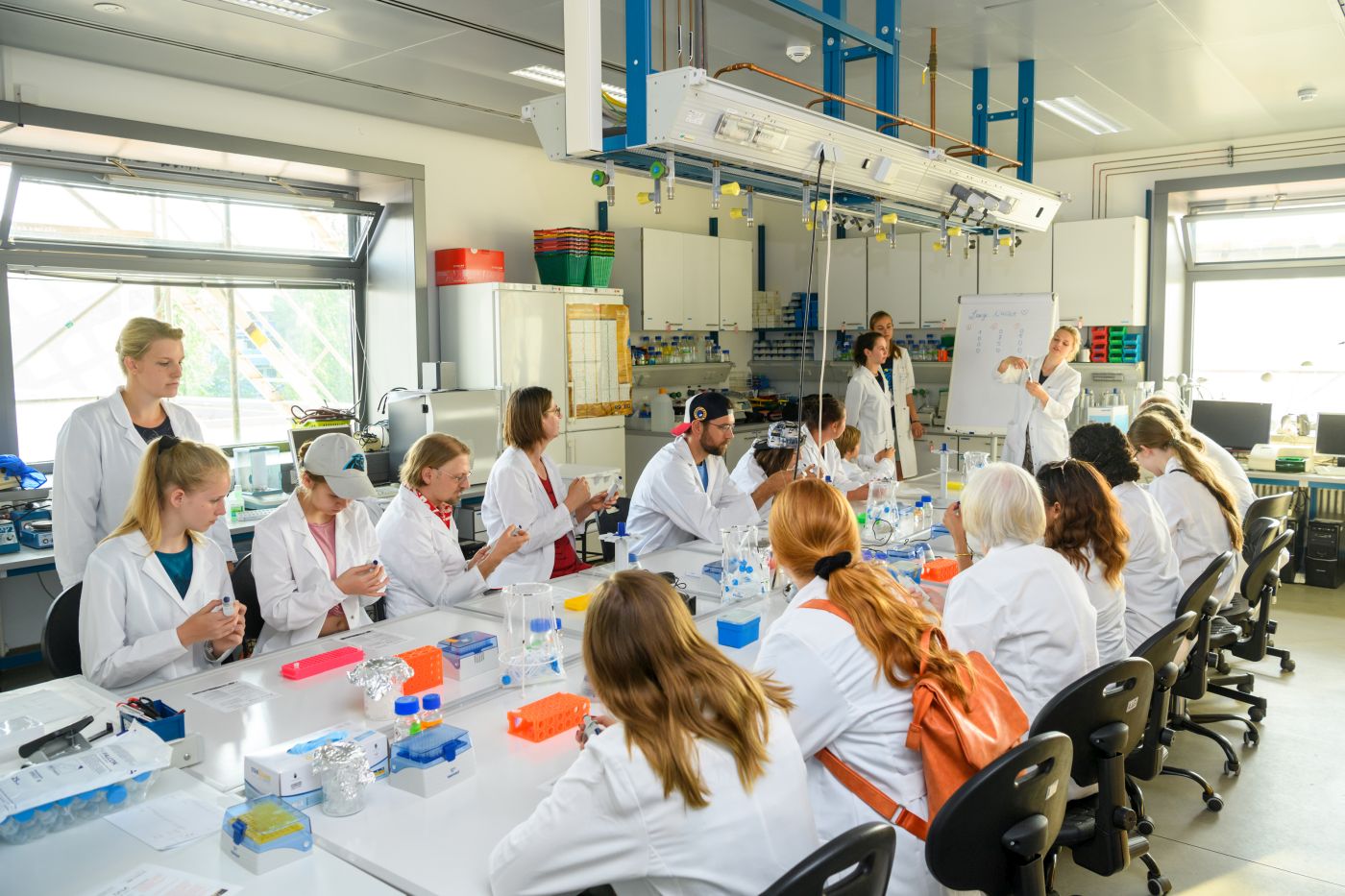
Education and Knowledge Transfer
Creating new knowledge and imparting knowledge, promoting young talent in the natural sciences, training and further educating specialists and showing the public what research is being done on campus – all this has to do with sustainability.
The Max Delbrück Center and the Leibniz-Forschungsinstitut für Molekulare Pharmakologie offer young scientists excellent conditions for doctoral studies, research projects and internships. Numerous trainees also benefit from the international environment of the research institutes.
With the Life Science Learning Lab Buch not only has a special extracurricular venue for learning. Together with partners such as the TÜV Rheinland Academy and the Federal Association of the Pharmaceutical Industry, the Berlin BioScience Academy (BBA) provides in-service training for laboratory staff, scientists and entrepreneurs. The Researcher Holidays combine an exciting program of experiments on campus with games and sports. Kindergarten and primary school children enjoy learning in the research garden: here, even four-year-olds can discover natural phenomena through experimentation.
With the innovative training series "Lab Meets Teachers", the Max Delbrück Center invites science teachers to experiment in the labs. New specialist knowledge, technological developments and facts from current research are taught as interactively as possible.
Traditionally, the Berlin-Buch campus is a major attraction during the Long Night of the Sciences, when researchers provide insights into their laboratories and research.
Events
all events25.02.2026, 10:00-
27.02.2026, 18:00
JUGEND FORSCHT – 61. Regional-Wettbewerb: Maximale Perspektive
18.03.2026, 08:30-
19.03.2026, 15:00
vocatium Berlin focus 2026: Fachmesse für Ausbildung+Studium
20.03.2026, 08:45-
20.03.2026, 14:00
Einladung: UniStem Day für Berliner Schülerinnen und Schüler aus Biokursen